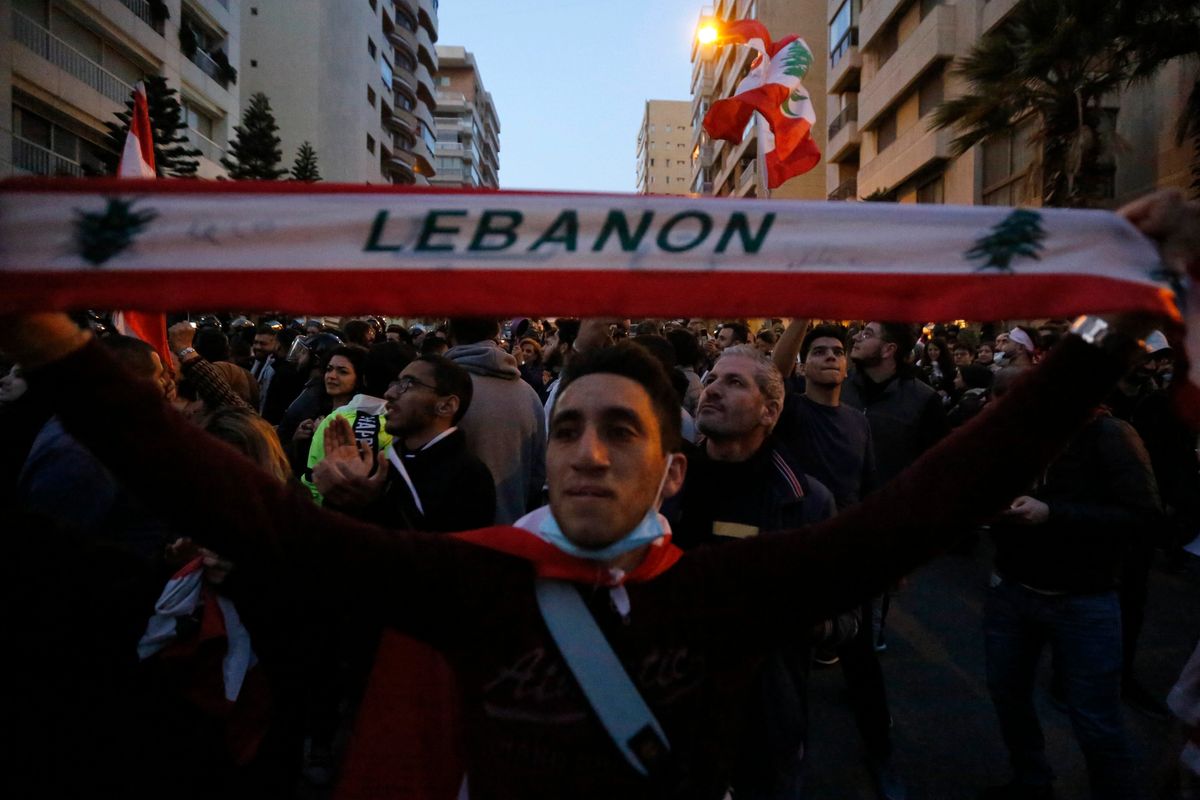Lebanon, one of the world's most indebted countries, is spiraling into poverty and political chaos after decades of economic mismanagement. Its government is seeking a $10 billion bailout package from the International Monetary Fund (IMF), but the IMF insists that Lebanon must first reform its bloated and corrupt public sector. So far, Beirut's power brokers have resisted. Is Lebanon about to implode?
A crisis decades in the making: While coronavirus lockdowns have exacerbated Lebanon's economic woes, the country's financial crisis has been deepening for decades. Lebanon's byzantine sectarian power-sharing system has brought the government to a standstill, while years of pocket-lining by politicians has crashed the economy and sent standards of living into freefall. (Even before the pandemic, the World Bank predicted that 50 percent of Lebanese could be living below the poverty line if economic trends continued.)
Thousands of protesters hit the streets late last year to call for "revolution," but the resignation of Prime Minister Saad Hariri created a power vacuum that only exacerbated the country's economic woes. Newly-appointed Prime Minister Hassan Diab announced in March that Lebanon would default on its foreign debt because its foreign currency reserves were running dangerously low. Anti-government protests erupted again recently as panic intensified over Lebanon's collapsing currency.
It's different this time. Lebanon has a long history of political and economic turmoil, but it's now genuinely on the brink of collapse. There are several reasons for this.
First, Lebanon is finally running out of cash. For months, banks have limited withdrawals of foreign currency, leaving millions unable to withdraw their savings. People who were once well-entrenched in Lebanon's middle class now rely on some form of emergency aid to put food on the table. This, observers warn, could make a true economic recovery much harder.
For years, Lebanon's government has used foreign currency to subsidize staples like food, medicine, and fuel. Amid the current turmoil, however, securing basic goods has been harder, prompting fears that Lebanon could soon face unprecedented levels of hunger.
Lastly, Lebanon, which produces next to nothing for export, has long relied on remittances from Lebanese working abroad — many of whom have been left cashless by the global economic downturn. Compounding the problem, Lebanon's currency has lost at least 60 percent of its value in the past month alone.
Instability breeds instability: What comes next?
Sectarian tensions in Lebanon have long plagued the nation of 6 million; a 15-year civil war (1975-1990) killed 120,000 and drew foreign powers directly into Lebanon's politics. There are already signs that sectarian discord is flaring again as leaders deflect blame for the crisis, creating more instability in that country after years of dysfunctional "peace."
Lebanon has another burden — the highest per capita refugee population in the world, which consists of Palestinians and, more recently, of desperate people fleeing war in Syria. Lebanon's now cash-strapped government has called on Syrian refugees to go "home," but human rights groups say this could unleash a new humanitarian crisis in an already conflict-ridden region.
Will outsiders really allow all this to happen? International donors — including the US, France, and the UK — which have kept Lebanon afloat in the past, now say they're no longer willing to throw good money after bad. Meanwhile, Gulf Arab states, which have also injected cash into the Lebanese economy, say they will not rescue Lebanon so long as Hezbollah, the influential Iran-backed group, remains a dominant political force in the country. If the IMF walks away, too, Lebanon will truly be in uncharted waters.


















